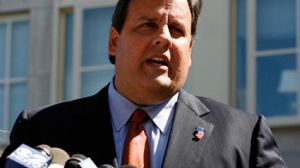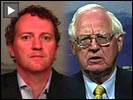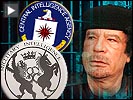 I cry whenever I think of a memorial service I attended in Iraq. From the back of the hot, packed room next to the chaplain's office, I looked down the center aisle and saw six sets of boots, rifles, helmets, and dog tags. Six Americans had lost their lives defending their country. I had seen these Marines hug each other before heading out on patrol -- real hugs, as if they guessed they might not see each other again. They had been in Iraq for a while and knew how dangerous every mission was.
I cry whenever I think of a memorial service I attended in Iraq. From the back of the hot, packed room next to the chaplain's office, I looked down the center aisle and saw six sets of boots, rifles, helmets, and dog tags. Six Americans had lost their lives defending their country. I had seen these Marines hug each other before heading out on patrol -- real hugs, as if they guessed they might not see each other again. They had been in Iraq for a while and knew how dangerous every mission was. Blood and treasure are the costs of war. However, many news articles today only address the treasure -- the ballooning defense budget and high-priced weapons systems. The blood is simply an afterthought. Forgotten is the price paid by our wounded warriors. Forgotten are the families torn apart by lengthy and multiple deployments. Forgotten are the relatives of those who make the ultimate sacrifice in defense of our country. As we look back on 9/11, we should also remember all those who deployed to Iraq and Afghanistan. Fewer than 1 percent of Americans have fought in these wars, and it is important for the public to understand their effects on our fighters and those close to them.




